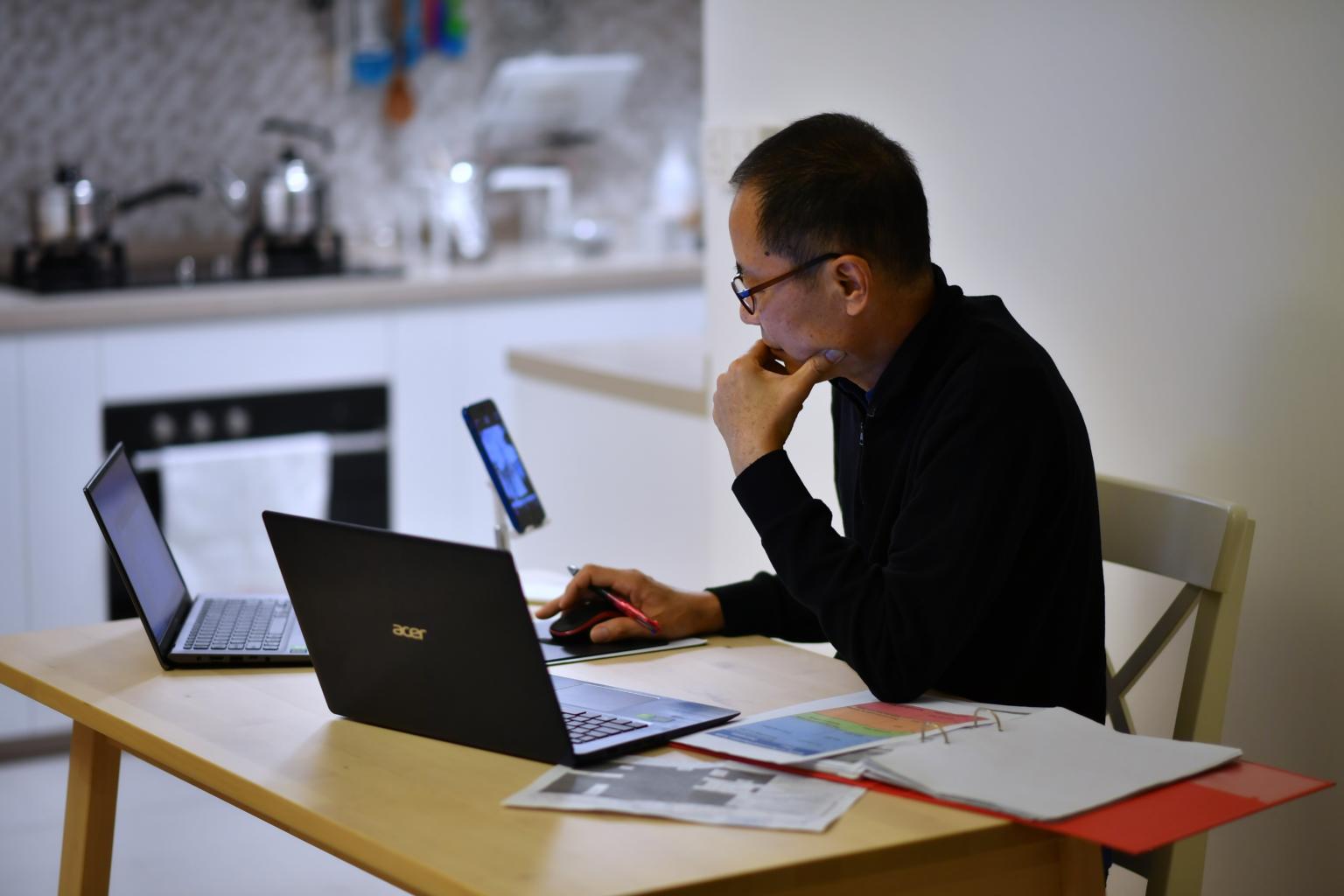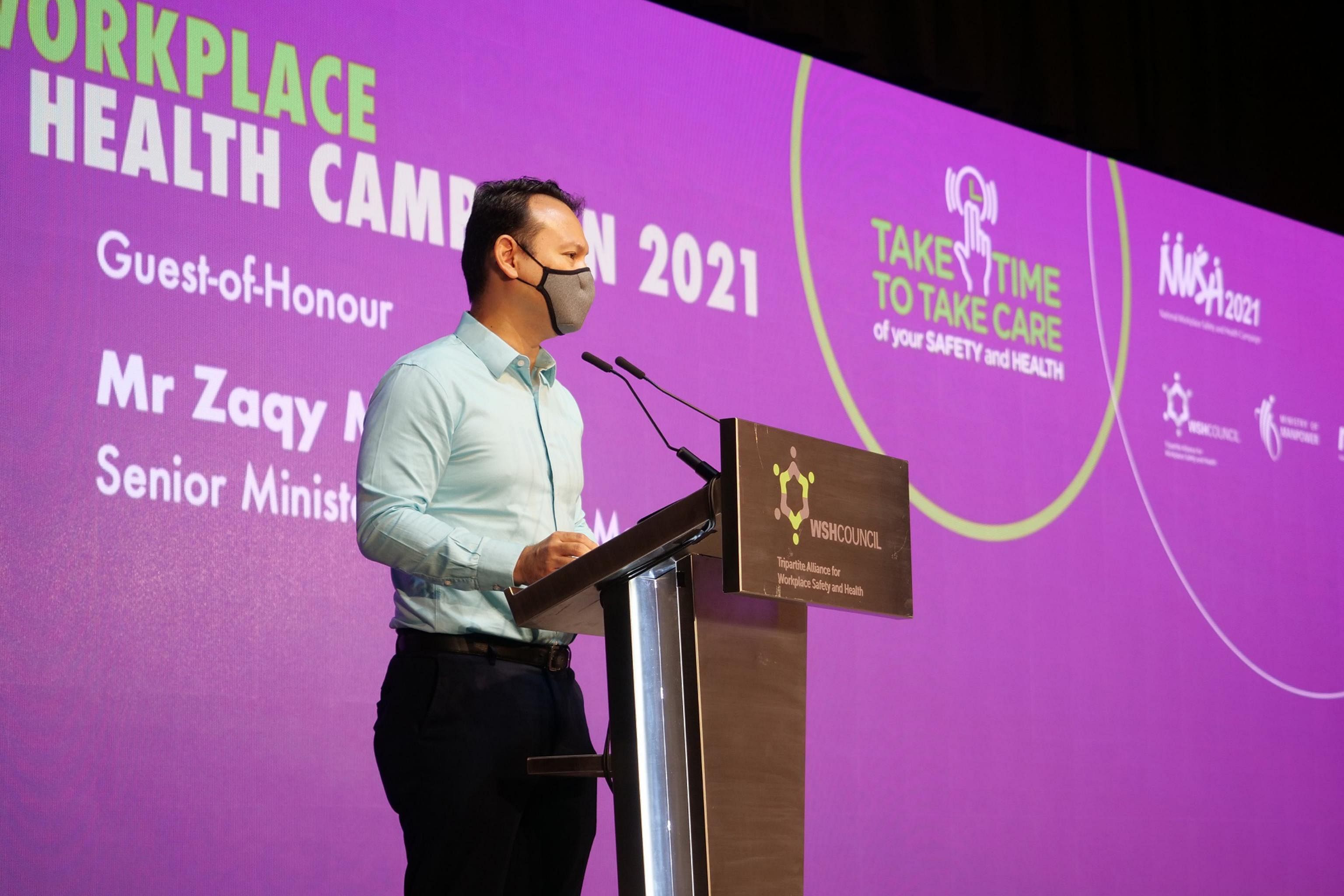Work-from-home arrangements highlight need to build workers' mental resilience: Zaqy Mohamad
Sign up now: Get ST's newsletters delivered to your inbox

A new campaign in September will see healthcare institutions and agencies share best practices to build workers' mental resilience.
PHOTO: ST FILE
SINGAPORE - The adoption of work-from-home arrangements last year due to the Covid-19 pandemic has put a spotlight on the mental stressors faced by workers here, especially with the blurring of work-life boundaries.
As such, building workers' mental resilience is critical, stressed Senior Minister of State for Manpower Zaqy Mohamad on Thursday (April 29) at the launch of this year's National Workplace Safety and Health Campaign. The hybrid event was held at the Trade Association Hub in Jurong and streamed online.
"Workers must take time to take care not just of their physical health, but also of their mental well-being," he added.
The annual campaign, organised by the Workplace Safety and Health (WSH) Council, entails year-long outreach efforts to promote safety and health in workplaces.
On mental well-being, a new campaign in September will see healthcare institutions and agencies share best practices to build workers' mental resilience.
About one in three people in Singapore feels his mental well-being has worsened since the circuit breaker kicked in a year ago, a poll commissioned by The Straits Times showed.
The poll of 1,000 people, conducted by online market research firm Milieu Insight from March 25 to March 29 this year, found that 31 per cent reported that their mental well-being had "somewhat worsened". Five per cent said it had worsened "much more".
The Ministry of Manpower (MOM) will continue to assist firms in developing such support at their workplaces, said Mr Zaqy. The WSH council will also be developing training workshops and an online resource page on mental health matters.
In addition, a tripartite award on mental well-being will be introduced next year to recognise individuals and companies that have adopted exemplary practices.
This year, employers and workers are also called to take a pause from work to care for their safety and health. This can be a scheduled break of 30 minutes or more, where workers can do stretching exercises, perform safety checks or identify hazards around them.
WSH Council chairman John Ng said: "When conducted regularly, these actions become habitual and can improve the worker's health and heighten his awareness of unsafe acts or conditions in his work environment in the long run."
Two other campaigns for workplace safety will run throughout the year to address the top two contributors to non-fatal workplace injuries in recent years.
One, targeting high-risk sectors, will be launched in June to address slips, trips and falls. Employers and workers will pick up best practices and set goals to reduce incidents.
A Safe Hands Campaign is also planned for March next year, where companies will be encouraged to take steps to prevent machinery incidents.
On Thursday, Mr Zaqy called on employers to send workers for regular training, assess risks and carry out periodic checks on equipment and procedures. Fostering a "no-blame culture" will also encourage workers to speak up when they see anything amiss, he pointed out.

Mr Zaqy Mohamad at the launch of the National Workplace Safety and Health Campaign at the Trade Association Hub in Jurong, on April 29, 2021.
PHOTO: WSH COUNCIL
He also urged workers to report unsafe conditions and near-misses to their supervisors.
Mr Zaqy said machinery safety, as well as slips, trips and falls were two "hot spots" that accounted for nearly half of all major injuries last year.
Citing an inspection on a manufacturing firm last week where MOM officers uncovered several lapses, including the poor maintenance of machinery, Mr Zaqy said such safety lapses can lead to serious injuries or fatalities. His ministry has also observed an emerging issue of more untrained personnel operating machinery.
For slip, trip and fall incidents, six out of 10 of those injured were cleaners and labourers, he highlighted.
One in five of those injured slipped, tripped or fell as they were walking, according to a survey of the 26,000 such workplace incidents between 2012 and 2019. The most common location where these accidents happened were at stairs or steps.
Mandatory workplace safety and health training will be rolled out in stages for selected sectors. For instance, all cleaners will undergo such training from next year to reduce the risk of slips, trips and falls.
WSH Council's Mr Ng said: "Although Singapore has gradually resumed most of its business activities and safe management measures may have been relaxed, we must continue to do our utmost to ensure that no one gets hurt at work."


